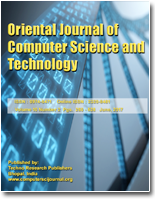 |
August 2023
Volume 16 | Number 2 Journal allows immediate open access to content in HTML + PDF |
Articles under review
 |
August 2023
Volume 16 | Number 2 Journal allows immediate open access to content in HTML + PDF |
Articles under review
ChatGPT: Capabilities, Limitations, and Ethical Considerations from the Perspective of ChatGPT
The emergence of ChatGPT, a cutting-edge language model based on the GPT-3.5 architecture, has had a transformative impact on natural language processing and human-computer interaction. This study delves into the capabilities, limitations, and ethical considerations associated with ChatGPT. It explores the model's underlying structure and training techniques, highlighting its remarkable ability to generate coherent and contextually appropriate responses spanning diverse subjects. The paper addresses the challenges presented by biases, misinformation, and safety concerns, emphasizing the ongoing efforts to tackle these issues through research. Additionally, it investigates potential applications of ChatGPT in fields like customer service, education, and content creation. Finally, the paper concludes by discussing future directions and key research questions in the advancement of conversational AI through the utilization of ChatGPT.
A Survey on Recent Advances in Medical Diagnosis and Telemedicine Using Machine Learning Techniques
Yusuf Musa Malgwi1*, Ibrahim Goni1 and Bamanga Mahmud Ahmad2
The significance of medical diagnosis in directing treatment options and improving patient outcomes is critical. With the rapid growth of machine learning, there has been an increase in interest in leveraging its potential to improve diagnostic capabilities. The aim of this research was to conduct a survey on current improvements in medical diagnosis and telemedicine using machine learning techniques, Machine learning and deep learning has shown exceptional success in analyzing medical images in a variety of modalities, including radiology, pathology, dermatology, ophthalmology, Neuro-science, Neuro-computing and Neuro-imaging. Machine learning algorithms have outperformed human specialists in tasks such as tumor identification, segmentation, and disease categorization in some circumstances. The incorporation of machine learning in telemedicine and remote monitoring has allowed for remote access to healthcare services as well as continuous patient monitoring. These advances have resulted in greater accuracy and fewer diagnostic errors in medical diagnosis. Machine learning algorithms have shown excellent sensitivity in diagnosing diseases such diabetic retinopathy, skin cancer, breast cancer metastases, and lung nodules. The successful creation, validation, and implementation of machine learning models in medical diagnostics requires collaboration between machine learning experts and medical professionals. This partnership brings together subject expertise, clinical competence and technical capabilities, resulting in more accurate, reliable, and clinically useful diagnostic tools. We can continue to uncover the full potential of machine learning in medical diagnostics and achieve transformative advances in healthcare by tackling the difficulties and fostering collaboration.